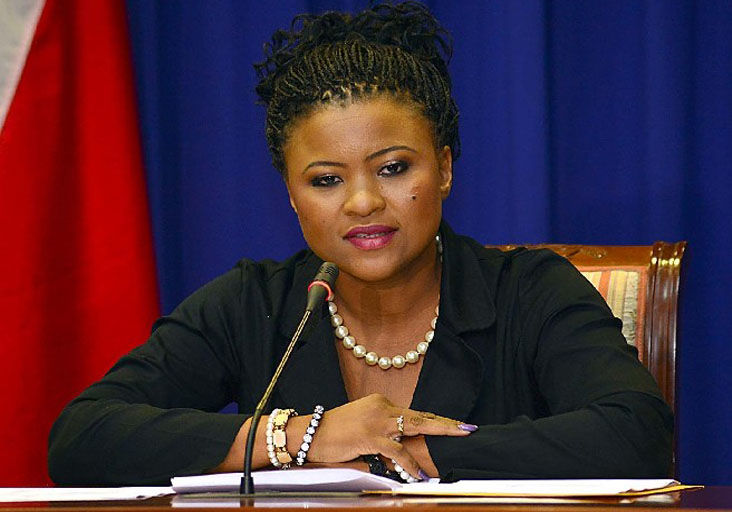(Trinidad Express) The Covid-19 pandemic may have disrupted the education system but the Ministry of Education says once all stakeholders work together and do their parts, the remote teaching method being implemented for the upcoming term will be successful.
Schools, which have been closed since March, are set to reopen on Tuesday — but not in the usual way.
Pupils will not be required to physically attend classes but the curriculum will be taught via online, television and other means.
Education Minister Dr Nyan Gadsby-Dolly detailed the plans for the virtual reopening of schools during a news conference at the Ministry of Education in Port of Spain yesterday.
The first term of the 2020/2021 academic year is to run from September 1 to December 11, Gadsby-Dolly said.
The ministry has separated pupils into two categories — those who can participate unhindered in the online environment and those who cannot due to lack of access to devices or Internet connectivity.
For the latter, she said teachers are to provide printed packages of learning materials which parents can collect at the schools at least once per week. Corrected assignments etc, will also be returned to pupils using this mechanism.
Corporate help needed
However, Gadsby-Dolly urged corporate T&T to get involved and aid in the provision of devices to those pupils in need as she said the online method is the best alternative to face-to-face teaching.
She noted that of approximately 225,000 pupils across the education system, roughly one quarter or over 56,000 do not have access to devices or Internet.
“Government will be considering the provision of devices to some students but we are also reaching out to the business community, the chambers of industry, to alumni associations and we are asking corporate Trinidad and Tobago to become involved in this effort,” she said.
She noted that the Government has had talks with service providers like Bmobile and Digicel as well as the Trinidad and Tobago Electricity Commission (T&TEC) and the Telecommunications Authority of Trinidad and Tobago (TATT) to be able to supply some devices.
She also pleaded with parents to ensure that their children complete assignments as she noted many of those with devices and connectivity still did not participate in the virtual teaching that was implemented last term.
Teachers will however be required to monitor and record attendance and participation and provide daily reports to principals. If pupils are not participating, the Ministry’s Student Support Services Division will be engaged to intervene.
Gadsby-Dolly noted there are parents who are illiterate themselves and may not be able to guide their children through the school work as well as those who are working and may not have the time to devote to home-schooling. However, she said everyone has a role to play.
“It is not intended that parents have to teach their children. They just have to ensure that they create an environment where the children can learn and they are very serious about children being engaged.
“This is a partnership with all of us. We expect the schools to do their part, we expect the teachers to do their part, we expect the parents to do their part and the students to do their part and, of course, the ministry to do their part to make sure that all of us are engaged in this most important process and that will be the way that we can get the best success for our children,” she said.
TV learning
Additionally, Gadsby-Dolly announced that television Channels 4 and 16 have been assigned to the ministry to run instructional material exclusively while discussions are ongoing regarding the provision of general education features via radio programming. A schedule of the programming is to be published shortly.
Pupils with special needs will be catered for through the Student Support Services Division and parents are asked to engage their children’s schools for individual plans on the way forward.
For pupils in the Early Childhood Care and Education (ECCE) system, a weekly pull-out in the print media will be made available.
Gadsby-Dolly said while no teaching activities will be taking place at schools, the school buildings are to remain open for teachers who need access to resources like printing services. However, teachers are encouraged to work from home once delivery of the curriculum will not be impacted.
With regard to the School Feeding Programme, Gadsby-Dolly said 500 lunches will be provided daily beginning on September 7. These will be delivered to the offices of each Member of Parliament for distribution to children in the community who require this service.

